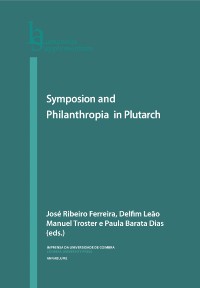Please use this identifier to cite or link to this item:
https://hdl.handle.net/10316.2/31977| Title: | “In learned conversation”: Plutarch’s symposiac literature and the elusive authorial voice | Authors: | Brenk, Frederick E. | Issue Date: | 2009 | Publisher: | Imprensa da Universidade de Coimbra Centro de Estudos Clássicos e Humanísticos |
Journal: | http://hdl.handle.net/10316.2/2353 | Abstract: | The Symposiacs offer a good entry point for understanding Plutarch’s dialogues. Plato’s, such as the Symposion, are often used as a model to interpret Plutarch’s without consideration of the changed circumstances in the Imperial period. Also, toward the end of Plato’s life, his dialogues became treatises in which the interlocutors are hardly important. Plutarch used no single character throughout his dialogues. Like Cicero he wanted to present the opinions of the philosophical schools, and often his own position is difficult to discern. The role and importance of various persons in the spirited intellectual discussions of the Symposiacs offer a clue to his intentions in the dialogues. At the same time, unlike his dialogues, his own persona appears frequently and with a surprising assertiveness. In some Symposiacs, especially the Ninth Book, as in The E at Delphoi and the Erotikos, he appears as fairly young, possibly a distancing technique. The Symposiacs in any case offered an opportunity to present his views in various shapes and sizes. | URI: | https://hdl.handle.net/10316.2/31977 | ISBN: | 978-989-26-0908-9 (PDF) | DOI: | 10.14195/978-989-8281-17-3_5 | Rights: | open access |
| Appears in Collections: | Symposion and philanthropia in Plutarch |
Files in This Item:
| File | Description | Size | Format | |
|---|---|---|---|---|
| 5-_symposion_and_philanthropia.pdf | 200.04 kB | Adobe PDF |  |
Items in DSpace are protected by copyright, with all rights reserved, unless otherwise indicated.
